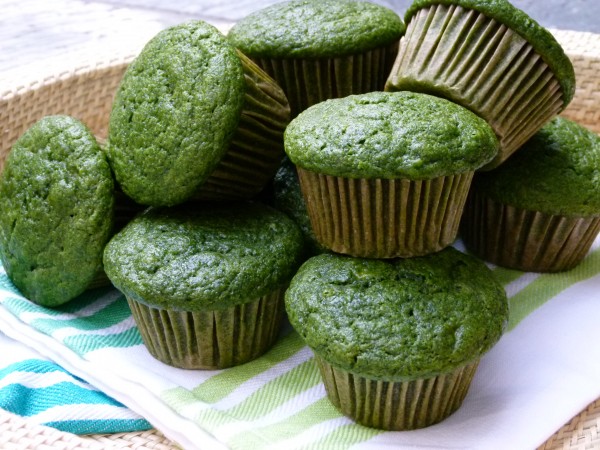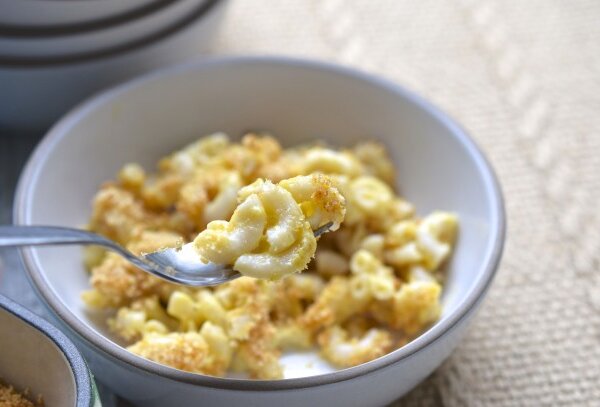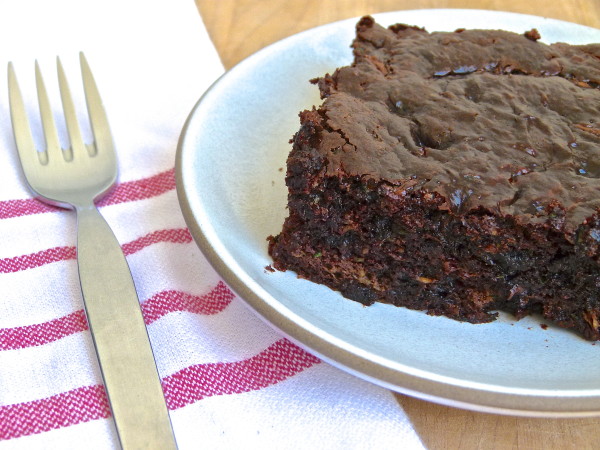
How to make gorgeous ahi tuna steaks with a simple marinade and a perfect sear. This easy recipe takes only minutes to make and yields the most delicious result. Serve this versatile fish warm or cold over greens, in a grain bowl, or a noodle salad and enjoy!

What is Ahi Tuna?
Ahi tuna refers to two types of tuna: yellowfin tuna and bigeye tuna. It’s a popular fish in Hawaiian cuisine and is often served raw in dishes like sashimi, sushi, and poke. Ahi tuna has a mild flavor and a firm texture and takes well to bold flavors in marinades.
When cooked, it is usually seared on the outside and rare on the inside to preserve its delicate flavor and texture. It’s rich in protein, omega-3 fatty acids, and various vitamins (vitamin d and vitamin b) and minerals, making it a nutritious choice for many dishes!
Why You’ll Love This Seared Ahi Tuna Recipe
Seafood is my animal protein of choice, but I am well aware that a lot of fish have contaminants and even high levels of mercury. Like all food groups, I try to aim for variety but minimize the toxic burden. I will come clean and admit that I LOVE tuna of all varieties. But ordering tuna steaks at a restaurant has been crazy expensive lately and it is so easy to make at home. My son goes absolutely nuts for this Marinated Seared Ahi Tuna!
- Super fast recipe that requires 2-3 minutes behind the stove
- It’s easier than it looks! Just marinate and sear
- Can be served warm or cold over greens, grain bowl, or noodle salad;
- A dish like this would cost you $$$$$ at a restaurant and you can easily do it at home!
Ahi tuna is a great alternative to popular salmon dishes when you want to switch things up! Salmon has a higher fat content, a stronger flavor, and flaky texture whereas ahi tuna has a mild taste, lower fat content, and works well in dishes that call for lightly seared or raw fish. We all love a good salmon recipe (me included!), but this is a great alternative to add into your recipe rotation.
Ingredient Notes
- Soy sauce – is often used in marinades to help tenderize and add flavor. I like using a high-quality soy sauce such as shoyu. Look for tamari if you’re gluten-free or coconut aminos for a soy-free option. Choose a lower sodium version of soy sauce if desired.
- Fresh lemon juice – you’ll need about 1 lemon for this recipe. Feel free to use lime juice instead.
- Toasted sesame oil – has a more pronounced flavor than regular sesame oil. I love adding it to stir-fries and marinades. I store it in the fridge because it can go rancid easily.
- Garlic powder – is great when you want a subtle garlic flavor over using fresh garlic.
- Cane sugar – adds a nice sweetness to the marinade and helps with caramelization.
- Fresh Ahi tuna steaks – I like to get fresh seafood from my local seafood market at the Redondo Beach pier. Look for wild tuna steaks, preferably. I’ve also seen wild tuna steaks sporadically at my local Costco. Check your favorite grocery store or fish market. You’ll need them to be about 1 1/2 inches in thickness. The thicker the steak, the longer you’ll need to sear them.
- Salt and black pepper
- Unrefined olive oil or avocado oil for searing
- Optional: freshly chopped cilantro, green scallions, toasted sesame seeds for garnish
- Optional: Sriracha mayo for drizzling (you can buy this or add sriracha to taste to your favorite mayonnaise)
Step-by-Step Instructions
Step 1 In a medium bowl or glass measuring cup, whisk together the shoyu, lemon juice, sesame oil, garlic powder, sugar, salt, and pepper to make a marinade. Pat dry the raw ahi tuna steaks with paper towels and place them in a glass or ceramic dish. Pour marinade over fish, turning to coat well throughout. Cover tightly with plastic wrap and refrigerate for several hours; turn fish over at least once in the middle of the marinade time.
Step 2 Heat 2 Tablespoons of oil in a large heavy skillet over medium-high heat. Sear tuna steaks in your hot pan for 1 ½ minutes per side, flipping carefully with a flat, steel spatula. If your steak is less than 1 ½ inches thick, sear for only 1 minute on each side.
Step 3 Transfer seared steaks to a large cutting board and let rest for 5 minutes. Use a very sharp or serrated knife to slice thinly across the grain.
Step 4 Serve your seared tuna warm or cold with optional garnishes or on top of a salad or make ahi tuna poke bowls. Drizzle with Sriracha mayo if desired. This is delicious on a bed of greens mixed with cabbage and carrots or on a cold sesame noodle salad. I often eat this as a “bowl” meal with rice (black rice, sushi rice, or cauliflower rice) + greens + roasted or grilled veggies + a sesame-tamari drizzle (1 teaspoon sesame oil + 1 Tablespoon tamari) or my Chinese chicken salad dressing from Quicker Than Quick.
Recipe Tips
- Some tuna steaks are treated with CO (carbon monoxide) to preserve color. Be sure to read labels or ask your fishmonger.
- Allow tuna to marinate in the refrigerator for a few hours before searing. This is the best way to help it absorb more flavor. But don’t marinate MORE than a few hours, because it will make the fish mushy.
- Make sure the skillet is hot before adding the tuna steak to get a nice sear. I prefer using cast iron when searing proteins.
- Sear the tuna steak for 1 1/2 minutes per side (less time for steaks thinner than 1 1/2 inches). You’re not cooking the tuna completely through, otherwise it will be dry and tough.
- Use a very sharp knife to cut the tuna so you get nice clean slices.
Recipe Substitutions
- Soy sauce – use gluten-free tamari or coconut aminos for a soy-free version
- Cane sugar – equivalent amount of maple syrup, maple sugar, or monk fruit sweetener.
- Ahi tuna – you can use this marinade on salmon or swordfish (yes, very high mercury, and I only eat it once a year or less) and if you add a tablespoon of arrowroot powder, use it on pressed tofu cubes or slabs and bake. See this recipe. You can also grill the fish.
Tuna Varieties
There are a few different species of tuna. Here’s a brief overview!
- Skipjack Tuna: smallest variety, strongest flavor, highest fat content, canned as chunk light tuna – lowest mercury
- Albacore Tuna: lightest flesh, mildest flavor, low fat, canned white – 3x higher mercury than skipjack
- Yellowfin Tuna: also known as ahi, less expensive than bluefin, more pronounced flavor than albacore
- Bluefin Tuna: more fat and flavor, most expensive, critically endangered
If you’re concerned about mercury in seafood, check out this link from the FDA.
Storage Tips
Store leftovers in an airtight container in the refrigerator for up to 2-3 days. Serve in a salad, bowl, or however you like to serve your tuna!
More Seafood Recipes
Seven Fishes Seafood Salad Recipe
Easy Thai Coconut Sauce Recipe (with Wild Halibut)
Sicilian Pasta Con le Sarde Recipe
Easy Salmoriglio Sauce with Grilled Seafood
If you give this recipe a try, snap a pic and tag @pamelasalzman so I can see your beautiful creations. I also really appreciate readers taking the time to leave a rating and review! I have started a weekly Monday newsletter with tips, musings, new recipes not published here, fun new finds, and more. Subscribe for free here.
For more delicious recipes and to learn how to be a better cook, check out my monthly online cooking classes. I have been teaching people for 15 years how to cook healthy food that their families love! Join me!
This post may contain affiliate links
View this post on Instagram
Quick and Easy Marinated Seared Ahi Tuna Recipe

Ingredients
- 2 Tablespoons shoyu, tamari or coconut aminos
- 2 Tablespoons freshly squeezed lemon juice or lime juice
- 1 Tablespoon toasted sesame oil, or 1 teaspoon sesame oil + 2 teaspoons avocado oil
- 2 teaspoons garlic powder
- 1 teaspoon cane sugar or maple sugar
- 1 teaspoon sea salt
- 1 teaspoon freshly ground black pepper
- 2 to 2 ½ pounds fresh ahi tuna steaks*, about 1 ½ - 1 2/3 inches thick
- Unrefined olive oil or avocado oil for searing
- Optional: freshly chopped cilantro, green scallions, sesame seeds for garnish
- Optional: Sriracha mayo for drizzling, you can buy this or add sriracha to taste to your favorite mayonnaise
Instructions
- In a medium bowl or glass measuring cup, whisk together the shoyu, lemon juice, sesame oil, garlic powder, sugar, salt and pepper to make a marinade. Pat dry the tuna steaks with paper towels and place in a glass or ceramic dish. Pour marinade over fish, turning to coat well throughout. Cover tightly and refrigerate for several hours; turn fish over at least once in the middle of the marinade time.
- Heat 2 Tablespoons of oil in a large heavy skillet over medium high heat. Sear tuna steaks 1 ½ minutes per side, flipping carefully with a flat, steel spatula. If your steak is less than 1 ½ inches thick, sear for only 1 minute on each side.
- Transfer seared steaks to a large cutting board and let rest for 5 minutes. Use a very sharp or serrated knife to slice thinly across the grain.
- Serve warm or cold with optional garnishes or on top of a salad. Drizzle with Sriracha mayo if desired. This is delicious on a bed of greens mixed with cabbage and carrots or on a cold sesame noodle salad. I often eat this as a “bowl” meal with rice (black rice, sushi rice or cauliflower rice) + greens + roasted or grilled veggies + a sesame-tamari drizzle (1 teaspoon sesame oil + 1 Tablespoon tamari) or my Chinese chicken salad dressing from Quicker Than Quick.
Notes
 Like this recipe? Rate & comment below!
Like this recipe? Rate & comment below!

















This tuna recipe was awesome! Marinated for 1 1/2 hours then seared in cast iron pan with avocado oil. My sear was harder than the one in your photo which added some texture to the fish.
Threw together a little asian-ish salad for the base. A little sesame oil in the salad dressing was a nice touch.
Well balanced.
I usually tweak recipies that I use, but I pretty much stuck to this one. It seemed right. It was.
This one gets saved! Thanks!
perfection!! so glad you found this recipe!!
This marinade is the bomb! Thank you very much!
thanks for trying it! Glad you enjoyed it as much as I do. 🙂
I made this last night (perhaps from your post earlier in the week?) I used Ahi and it was DELICIOUS! My husband loved it. I served it warm with roasted cauliflower. I will definitely make this again and perhaps serve it with a soba/Asian salad. I used soy sauce because I was out of Tamari. I would suggest Tamari. Even low sodium soy sauce is a little salty-and I do like salt. Thank you! Leslie
Thanks, Leslie. Glad to hear this recipe was a success!
Great point about soy sauces. Different brands will vary in flavor and salt levels. Feel free to reduce the salt in the recipe to your preference.
Great timing! I purchase Ahi at my local farmers market. My family loves it, but one time I ruined it and have been fearful to try again. I will use your recipe next time!
The key is to sear it and serve it rare. If eating rare fish is not your thing, ahi is not your fish LOL!
Looks delicious and like your suggested serving options. Thanks Pamela!
I hope you give it a try, Debbie!